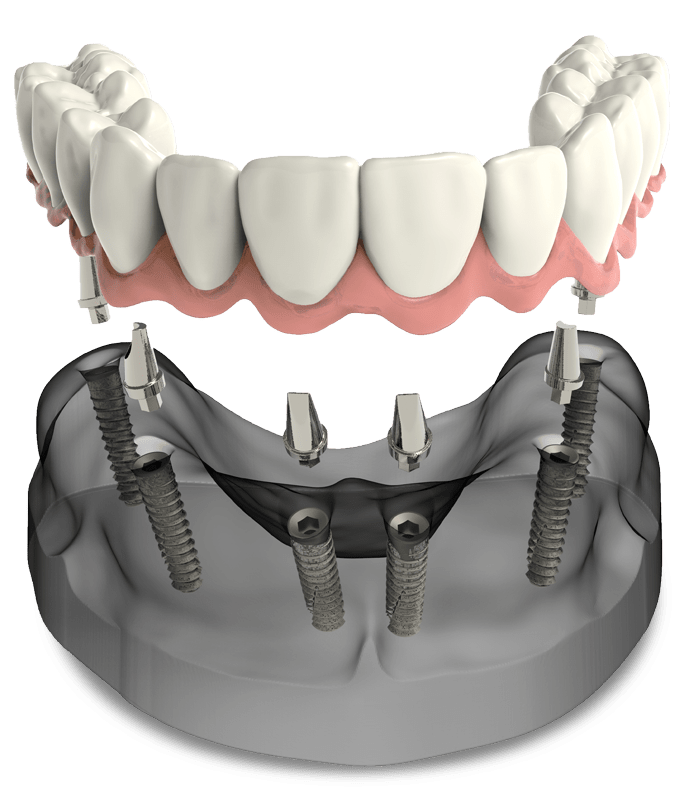
With today’s advanced surgical techniques and technologies, virtually every patient can be a successful dental implant candidate. Ideal candidates are generally in good physical health without underlying infections or diseases that may hinder healing. Having ample, stable, healthy bone tissue is beneficial for providing a strong foundation for your new teeth.

To determine your candidacy for dental implants, we conduct a comprehensive evaluation that discusses your dental history, oral health impact, and medical background. We collect detailed diagnostic images, assess available bone tissue, and evaluate facial bone anatomy to tailor a personalized treatment plan. Our thorough evaluation considers vital factors to ensure optimal outcomes and suitability for dental implant surgery. During the consultation, we look for a few determining factors:
If your gums are infected or inflamed, your dental implants won’t have a healthy environment to heal and stay strong long-term. Active gum disease damages the underlying bone, too.
Patients battling gum disease may still be dental implant candidates after we resolve any active disease or inflammation that could compromise the success of your implant surgery.
Dental implants get their strength and stability from the bone tissue where they’re placed. If you don’t have enough bone to accommodate the implant post, we may need to fortify the site with a bone graft or use an alternative approach.
Some systemic conditions, such as osteoporosis and certain medications that affect bone healing, may also affect osseointegration –the implant fusing with the jawbone – and lead to implant failure. We’ll discuss potential complications for your case and adjust our plan and expectations accordingly.
Some medical conditions make it hard for your body to heal after surgery. Others may increase your risks for infection. Uncontrolled diabetes, immune system disorders, and bleeding disorders may make implant surgery riskier.
Diseases affecting bone density, like osteoporosis, may weaken the bone tissue to support implants. Even if you have systemic conditions like these, we can create an adjusted treatment plan that will work for your specific situation.
Good dental implant candidates need to be able to undergo surgery without excessive strain on their bodies. Pregnant patients should wait until after delivery to rebuild their smiles with implants. Patients who have difficulty breathing or extremely high blood pressure will need extra consideration to make sure they stay safe during surgery.
Staying in good physical health will also ensure your dental implants remain solid and functional for the rest of your life. Smoking and oral tobacco use can cause implant failure, so ideal candidates should reduce or, ideally, quit using tobacco before surgery.

With over 45 years of combined experience in restorative and cosmetic dentistry, our team is dedicated to addressing the root cause of dental issues rather than just surface-level symptoms. Our multicultural office environment enables us to communicate with patients in their native languages, enhancing comfort and understanding.
By leveraging the combined expertise of our oral surgeon and cosmetic dentist, along with advanced techniques and technologies, we deliver truly customized smiles that restore dental health and enhance overall aesthetics and function. Whether you require restorative care or desire cosmetic enhancements, our team is committed to providing personalized and effective treatments tailored to your unique needs and preferences.

I understand the information disclosed in this form may be subject to re-disclosure and may no longer be protected by HIPAA privacy regulations and the HITECH Act.



Leave us a Review on Google
for Hackensack or Dover | Privacy Policy
© All rights reserved